|
Speaking of Birth... here are some gorgeous moments captured from a recent birth I attended as birth photographer.
Sometimes you attend a birth and the air is thick with love. My last birth as an NJ Birth Photographer at Pascack Valley was just that type of birth. This is why I always encourage people to hire a birth photographer because you will want to capture those images of your partner supporting you, of holding your baby skin-to-skin for the first time, of the amazing birth team that accompanied you on this journey. It seems simple but when everyone is so busy on the day of, it is important to have a designated photographer. Here are some images from that birth to give you a sense. Please contact me today to chat about your spring or summer booking for Birth Photographer NJ. All photos shared here with permissions. Thank you to the family for opening their hearts and sharing such an intimate, beautiful and empowering experience. I am forever grateful to be able to share a family's positive birth experience. (Midwife, Donna Tabas; Doula, Lexie Litvin) Not everything comes naturally but that is no reason to be discouraged from pursuing something you want to pursue.
Sometimes we need to learn the basic skills first in order to feel comfortable enough to let our intuition really flow and to allow things to come naturally – to have the ability to “just know” something without any proof or evidence. Take a chef for example – to be able to say “oh I just added a touch of this and stirred in a little bit of that” is usually from years of trial and error – from souring sauces and burning side dishes. Now they can play around with seasonings. Or consider a businesswoman who says, “I followed my gut” or “I had a hunch about that deal” – it’s often from years of experience and observing behavior, analyzing metrics, and taking risks. They already know how far they can push things and what the likely outcome will be. Intuition as a learned skill applies to business and creative pursuits as well as many of other vocations – and in my personal experience, it applies to working as a birth doula in northern New Jersey. As a birth doula, a woman who supports and serves women in childbirth, it was frustrating when I started to have more-experienced doulas tell me – “just to follow your intuition”. I would think–I have no idea where this intuition, you speak of, starts or where it leads, so can you please provide me a little direction? When I started as doula, I would always do a simple hip squeeze – placing my hands on either side of mom’s hips, applying pressure to relieve pain and tension. I did this repeatedly because neither my skills nor intuition was guiding me anywhere else. About a year ago I participated in a workshop where we learned in-depth information about positioning for mother and baby and am now able to follow my intuition more. The workshop changed by practice. Knowing more helped me be more intuitive. Now when I support a mother – I know to breath out any tension and let any thoughts go from my own mind – to leave the suitcase at the door. I listen to what comes intuitively - to the sounds of the birthing space and the birthing woman. Tuning in helps me listen to the sounds of her movements – whether they be tired, tense, relaxed, imminent. I can sense her clenched jaw and gently rub her jawbone to provide release. I can tell she is hold tension in her pelvic area by how she paces and positions herself during contractions – and can gently place my hands on her sacrum to offer her release and support. Are her legs tired from standing all night? I can feel if her muscles are taught or wilted and go on to provide a gentle foot massage or little wiggle to shake out her lax limbs. It took me years of building my knowledge and skills to get to the point where I felt I could follow my intuition but now I feel confident to enter the space of a birthing woman and close my eyes and listen to the space and to what her body is telling me – where her body is guiding my hands to go, to be intuitive. To “just know.” So if this skill of intuition was there all along and is available to all of us - how can we hone it? How can we simply be more attuned and responsive to the subtle clues we receive? Scientific America Magazine wrote that intuition is linked to the basal ganglia area of the brain – an area that controls fast, automatic, cognitive operations. So it would make sense that to hone our intuition we need to improve or maintain our brain health. As many studies show – brain health can be maintained with good diet, exercise, plenty of sleep, and clearing the mental clutter. To be a good listener and more intuitive, it is important to turn off the chatter in our brains. We can do this using meditation or periods of silence and solitude where we focus on our breathing or something that brings us peace. In order to be better listeners in our environments, we need to turn off the noise. So intuition may not be a mystical thing for all of us. If we are experts or even very experienced in our fields – it may be a matter of just connecting the constellation of silent clues we receive in order to yield an intuitive response. Being intuitive can be a wonderful, freeing feeling. I will never, ever say to a doula starting out – “oh just follow your intuition” as if they already have that roadmap. For some of us, it is only possible to follow our intuition after we have created a map that charts skills, knowledge and experience. Only then can we can paint with broad brush strokes of intuition over the charted ones. As Picasso says, “It took me four years to paint like Raphael, but a lifetime to paint like a child.” Fellow doulas, what helped you to follow your intuition more? Photo shared with permissions. PC: Rachel Connolly Kwock. Feat.: Doula Holly Graff & Midwife Donna Tabas. 8/5/2017 0 Comments A Place at the TableDoes this white birth doula have a place fighting racism in childbirth? “All white people are racist. I am racist.” This is one of the first statements in the “10 characteristics of Anti-Racists White Allies: Attitudes and Behaviors” published by Grassroots Leadership’s Barriers and Bridges Program. It is not saying I am a racist, it is saying I am racist. I believe it is just acknowledging that western society is rooted in keeping white people at the top - supreme - and hence white people are raised with certain racist perspectives regardless of how open-minded or tolerant one is. I think it is almost impossible not to be racist in our society. At first it hurt to say it because I do not identify with being racists. I’ve spent a lifetime embracing diversity, exemplifying tolerance, and believing in justice for all. I lived in New York City for years, socialize and work with people who do not look like me, exposed myself to world cultures, I am in an inter-racial marriage, a humanitarian at heart. So why did I have to call myself racist? Well, when I started advocating for the role of the doula to go into our local hospitals and help create more equity and access for black birthing women, my organization NNJDoulaNet was effectively stonewalled by the people already doing the good work. I don’t know if they thought my interest was trendy and disingenuous or if I was the lady coming in from the outside who was white centering and could not be trusted, but I was effectively told not to practice in their area and to go get some training. It was painful, it stung. Here I was wanting to bring my big, open heart and my skills helping motherbabies and I was shut down. So I asked myself- do I have a place at the table fighting racism in childbirth? I didn’t know if I had a place but I knew I needed to try because we have a crisis happening right now. Recently, there were several studies and reports that came out from the CDC that revealed there are major racial disparities in infant and maternal health- nationally and right here in my home state of New Jersey - specifically in Essex and Camden counties. In NJ, a black baby is 3x more likely to die than a white baby per NJSHAD*, and nationally, a black mother is 3x4x more likely to die from pregnancy and childbirth complications than a white mother per the CDC reports. (The numbers quantify the number of women and babies who died but what about the type of environments and birth cultures and systems exist that allow that to happen in the first place? And what happens to all the women who survive the complications or overmedicalization - who fall then into the morbidity statistics - the quote “near-misses” - where they ALMOST died - from postpartum hemorrhage, placenta accreta, complications from cesarean, infection. The maternal and infant mortality numbers are just a mere glimpse, a little window into a much larger problem.) And why, because we have to ask why. We don’t know exactly why but it does not seem to be just one thing. It seems just the experience of being black is the cause of the higher rates - experiencing generations of systemic racism that perpetuate poverty and stress and things that go along with it - such as high blood pressure, diabetes, smoking, gum disease, lack of good prenatal care. All these things combined set black parents up to be high-risk patients, where they are more prone to complications. That is all before they enter the hospital doors! Once they enter the hospital, they become victims of institutional racism - where they are not seen as, for instance, a healthy, wealthy woman who has a PhD but rather as a generic, faceless black mother with whom the hospital staff has no intention of sharing informed consent. The hospital might even medically treat the mother based on a predisposition of racially stereotyped conditions - conditions that she doesn’t even actually have. So, heck yea I wanted to help- I feel passionately about these issues! I grew up on a farm watching animals birth babies and listening to my mother’s stories of her birthing six babies. Birth was always the great equalizer (thank you Sarah Bell for clarifying that for me) where mothers relied on their instincts and were gently aided and supported by caring professionals - whether it be a vet or a doctor. It birthed in me a knowing that I wanted to help protect G-d’s children during the birthing process as a mother delivers her baby earthside. It breaks my heart to know that a black woman’s birth is less safe for her, her baby, her future babies, for future generations even. Less safe than it could be. Knowing this injustice is out there makes THIS doula want to get in to labor and delivery rooms and be an ambassador for safe and satisfying birth experiences for our most vulnerable - and right now in the U.S. women of color are vulnerable when it comes to maternity care. So as a doula, a person who supports women having choices in childbirth, and a lifelong humanitarian and seeker of justice, of course I want to help- I want to help personally and thru my organization, NNJDoulaNet which can bring in the strength and passion of other doulas. The presence of a doula, a trained non-medical birth support person, can help improve birth outcomes. According to the Cochrane July 2017 Review, doulas are a good thing! “Modern obstetric care frequently means women are required to experience institutional routines. These may have adverse effects on the quality, outcomes and experience of care during labour and childbirth. Supportive care during labour may enhance physiological labour processes, as well as women's feelings of control and confidence in their own strength and ability to give birth. This may reduce the need for obstetric intervention and also improve women's experiences.” This translates as less cesareans, less interventions, which in turn means less complications resulting from those interventions. So doulas can help but do I personally have a place at the table in the fight against anti-racism in childbirth? Maybe. Maybe not. There is a group of birth workers who meet to discuss forming a coalition around anti-racism in birth. I started joining these meetings this past summer. During one session, the teacher (Aimee Brill of Village Birth International) spoke to us on anti-racism in a training called, “Deconstructing White Privilege and Allyship in Birth Work through an Anti-Racist framework” It was just the beginning of lifelong anti-racism learning for me, but it was huge start. Aimee asked why the colonist might have taken slaves. We went around the room offering reasons/answers and I said power and control. Later a fellow attendee, a woman of color, said it felt like a relief or it felt good or something to have people (me!) taking ownership, to admit, to take accountability for things that had happened. I nearly fell off my chair! I wasn’t saying I personally took slaves for power and control, I was just saying they - like these hypothetical, historical people very far removed and in no way related to myself, very cold, mean people, did it for power and control. I did not realize I was taking personal responsibility by saying what I said, but I am white and as a white person I have indirectly benefited from slavery, so I guess I need to take accountability for what my people did. So I sat silently and I listened to what she had to say. This anti-racism journey would mean more listening to what people of color have to say, and less defending my whiteness! Oh man, it sucks, I hate it, it’s so uncomfortable! I just want to squirm out of it! Another tenant from the 10 attitudes & behaviors says: Expect to be uncomfortable as a white anti-racist ally. So... I'm right on track. When the training was over - I literally wanted to go up and apologize to every person of color I passed in the store, or who I knew personally. I wanted to say “I’m so sorry” for everything you’ve been through, for everything we did to you. I’m so sorry for the racism that you have been subjected to for generations and that you continue to be subjected to daily and that you worry your children will be subjected to in the future. I’m so sorry. I didn’t actually do that but I DID realize that simply my background rich with culture and diversity and my beliefs around tolerance and seeking justice and all that, were not going to be enough, it was all too passive - being an anti-racist white ally meant taking a very active role against racism and being very vocal about it. So I continue to ask - do I have a place at the table? Can I use my my whiteness/ my white privilege as an asset? Maybe I can I act as a resource-person for referrals - guiding other white birthworkers to individuals, organizations and resources who are working on dismantling racism? Maybe I can help from behind the lens - to capture and document the current movement to end racism and disparities in childbirth - I can help add representation and images of people of color? I want to help but I’ve learned that as a white person, someone who hopes to be a white ally, I need to be careful. Aimee also shared it is important to amplify and not overshadow those who are doing the good work. Also I’ve read “Is our work from the white community another form of colonization?” So if I say my organization operates from an anti-racist framework, what does that mean to the organizations or individuals with whom we are working and IS our presence another form of colonization? It is vvvast and complicated and I am just starting this journey of bringing my seeking of justice together with my passion for birth. I hope to help and protect vulnerable mothers and babies, so they may be strong and enjoy safe and satisfying births. I’ve learned it's not about me, it’s about the movement and if I get criticized for saying all this, that’s okay because that’s also part of the process. So do I have a seat? I honestly don't know and it's okay because I am okay with my whiteness and I am committed to fighting racism - wherever my place may be. NJSHAD How Are We Doing? "The infant mortality rate in New Jersey has been decreasing since the early 1900s. However, the rate varies widely across the state and by several maternal and infant characteristics. The rate among Blacks is three times the rate among Whites and double the rate among Hispanics. The rate is highest among the oldest and the youngest mothers and, regardless of age, unmarried mothers have rates about double those of married mothers. Infants whose mothers receive no prenatal care are more likely to die than those whose mothers receive prenatal care. Low birth weight and preterm infants are much more likely to die, however when the effect of birth weight is controlled for, singletons are more likely to die than multiple births. Two-thirds of infant deaths occur in the neonatal period (within the first 27 days of life). The leading causes of infant death are congenital anomalies and short gestation/low birth weight. The Healthy New Jersey 2020 targets for the total population and Asians had been met by 2014." Some other resources:
Black Women Birthing Justice Fusion TV's "Death by Delivery" Doc Undoing Racism Workshop |
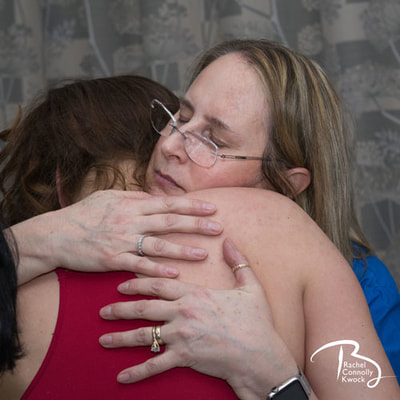
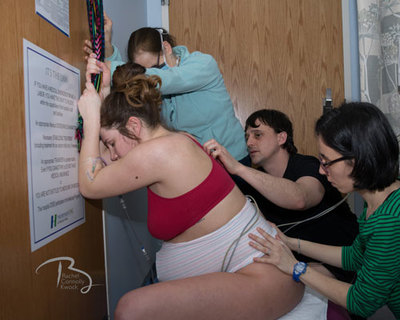
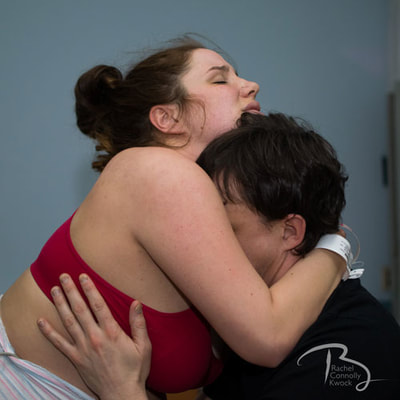
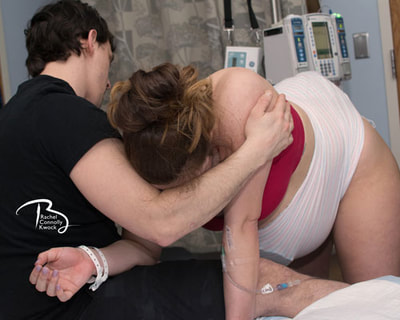
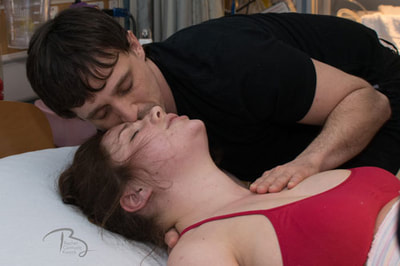
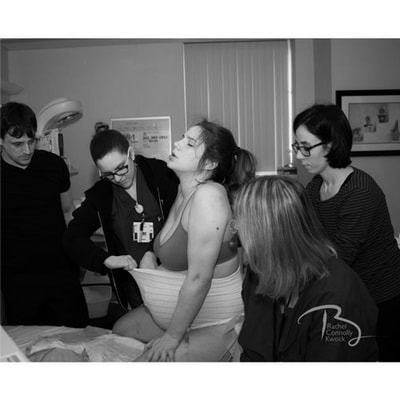
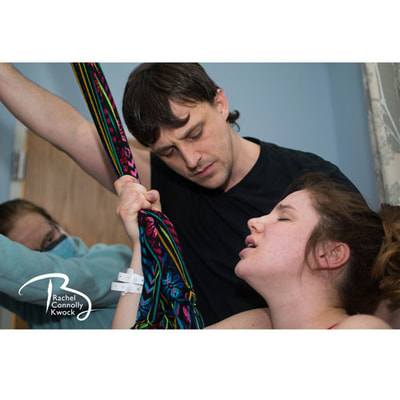
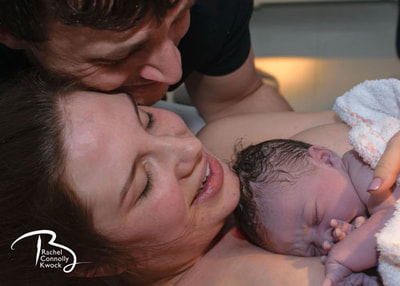
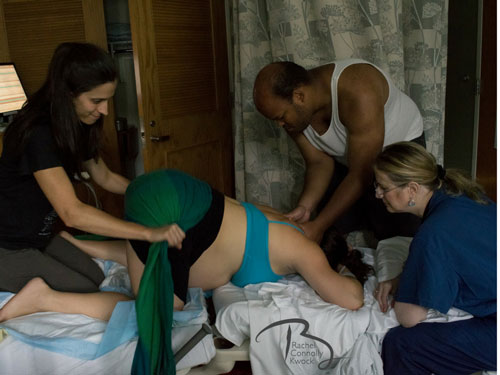
 RSS Feed
RSS Feed